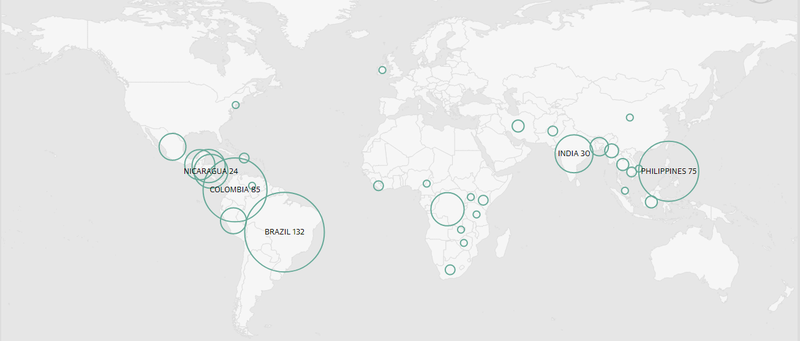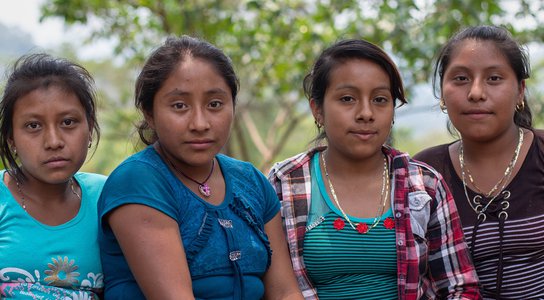
Our new partnership with the Guardian will
chronicle killings of environmental and land activists in real time, helping to
expose this hidden crisis and bring pressure to bear on governments, companies
and investors.
The assassination in 2016 of Honduran activist Berta Cáceres made international headlines. Berta, a friend of ours, had received dozens of death threats for her efforts to defend her land against the terrible impacts of a hydro dam that her community never agreed to. On March 2nd armed men broke into her home in the middle of the night and shot her dead.
News of Berta’s death travelled far because she had made a name for herself internationally - a year earlier she had won a prize for her bravery in environmental activism. Berta was the exception. 200 people were killed in the same year under similar circumstances – linked to industries like hydro, mining, logging or agribusiness - but most deaths were chronically under-reported.
Today we’re launching a new partnership with the Guardian that we hope will help change that. In recent years we’ve been documenting on an annual basis how many people have been killed defending their land, forests or rivers against the harmful effects of industry. Now we’ll be doing it in real-time (or as close to real-time as possible)

A new online tracker hosted on the Guardian website will chronicle the deaths of land and environmental defenders as soon as Global Witness documents and verifies them. The Guardian will also be deploying their foreign and environmental correspondents to report on cases of violence, attacks and threats as they happen.
We’re hoping this will help break the silence that fuels this rising tide of violence. Many activists who are murdered live in remote villages deep within rainforests or mountain ranges, and their deaths pass under journalists’ radars. Without the exposure that comes from media coverage, governments and businesses have fewer incentives to protect people under threat, or to punish perpetrators.
We’re trying to put these killings on the map, and will be campaigning for the sorts of changes that are needed to stop the death toll rising.
Across continents – from Brazil, to South Africa to the Philippines – many of these killings have common characteristics. As companies and investors go in search of land to grow crops, mine minerals or feed cattle, many are doing business where the rule of law is weak and corruption rife. Made financial offers they can’t refuse (often including bribes and kickbacks), governments are handing land to industry without first getting the permission of those who live on it.
When the land people rely on to grow food is stolen, their water contaminated or their forests gutted, many have no choice but to stand up and speak out. But increasingly those who do are being silenced with bullets. Some are shot dead during protests, others are gunned down by hired hitmen. Almost always their killers get away with it.
In May for instance, four people were killed and two injured when villagers in Jatpura in eastern India clashed with a company that was mining sand. Sand’s in high demand in India – it’s turned into concrete to feed the country’s construction boom. But excessive sand dredging can have disastrous impacts on fishing, farming and drinking water, and can also make coastal communities more vulnerable to landslides and tsunamis.
Most Indian states have laws to regulate sand mining, but these are frequently ignored. Campaigners say the bribing of officials and police is common. This is just one of the cases now included in the Guardian’s online tracker.
Year-on-year these deaths are increasing. Governments, companies and the investors who bankroll them have a duty to guarantee that communities are consulted about projects that affect them, that they are protected from violence, and that those responsible for killing, attacking or threatening them are brought to justice. We hope that this project will help spur them into action.
